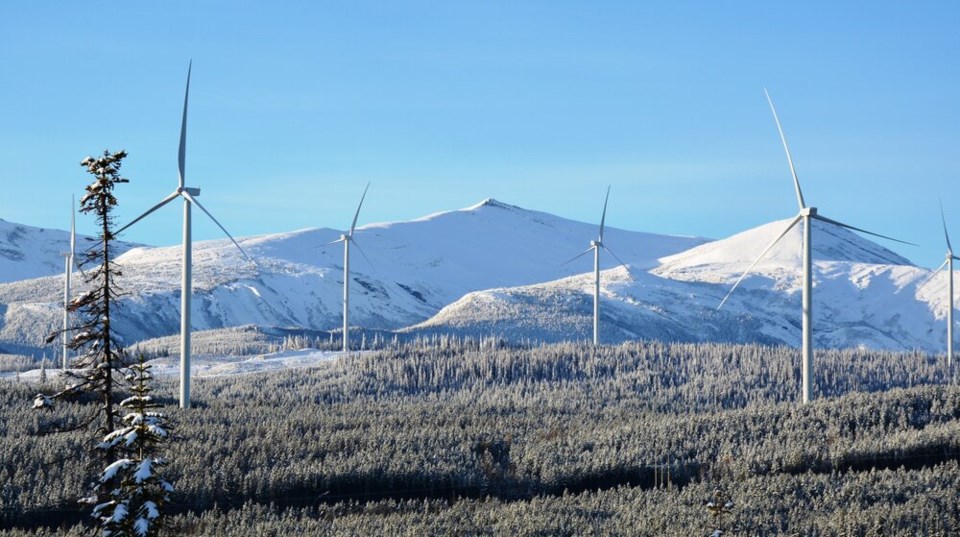BC Hydro says it has received 9,000 gigawatt hours of new clean power proposals – triple what it needs to fulfill its current call for power.
Despite the fact the new Site C dam is expected to begin producing power towards the end of this year, BC Hydro is forecasting a power shortfall in the coming years. So in April, it issued a call for power proposals to deliver up to 3,000 gigawatt hours of new renewable electricity.
The Ministry of Energy, Mines and Low Carbon Innovation today reported that BC Hydro has received three times that amount of power bids from independent power producers.
“There were 21 proposals from independent power producers throughout B.C., representing more than 9,000 (gigawatt hours per year), enough to power approximately 800,000 homes,” the ministry says in a news release. “Of the proposals received, approximately 70 per cent are wind projects, 20 per cent are solar and 10 per cent include biomass and hydro.”
The recent clean power call was the first issued by the province in 15 years. Private power producers have had little opportunity in B.C. for about a decade now, as the green-lighting of Site C dam dried up prospects for new renewable energy projects.
Of the 21 proposals received, eight are proposed for the southern Interior, four in the central Interior, five on the north coast, two in the Peace Region and two on Vancouver Island.
Under private power production, independent power producers pay the capital cost of building wind farms, solar power plants or run-of-river generating stations, in return for long-term power purchase agreements.
The ministry said it expects the current power call will result in $2.3 billion to $3.6 billion in private investment in B.C and create 800 to 1,500 jobs annually.
BC Hydro plans to select projects by the end of this year and award electricity purchase agreements in December. The ministry said it expects some of the projects could be online as early as 2027. Once the full 3,000 GWh of power is built out, it will add about five per cent to B.C.’s total power generating capacity, the ministry said.
“The 21 proposals put forward by independent power producers are just the start of B.C.’s renewables potential,” said Evan Pivnick, clean energy program manager at Clean Energy Canada.
“This call was explicitly looking for projects that can start operation as early as 2028, meaning they had to be at a more advanced stage in order to enter. With calls for power expected at least every two years going forward, we can expect a far greater number of projects are yet to be proposed.”
Electrical Contractors Association of British Columbia President Matt MacInnis issued the following statement on the response to BC Hydro’s call for clean electricity project proposals:
“It is very encouraging to see the private sector bring forward projects offering nearly three times the generation capacity BC Hydro is seeking in this first call for clean power," said Matt MacInnis, president of the Electrical Contractors Association of BC. "It is clear that British Columbia has the opportunity to diversify our energy mix to add more wind and solar power.
“We need to ensure that B.C. has the skilled tradespeople and construction professionals required to get the projects that are selected by BC Hydro from concept to construction to generation.
"This will require new investment to increase training seats and operating funds for training facilities. Without new electricians and powerline technicians, projects will likely continue to struggle to built on time and on budget.”




